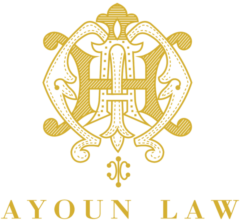Refinancing your mortgage can unlock equity and reduce your payments. Our specialized legal team in Fletcher’s Meadow ensures a seamless refinance process, protecting your interests every step of the way.
Why Hire a Mortgage Refinance Lawyer in Fletcher’s Meadow
- Review refinance agreements and lender instructions for accuracy and fairness.
- Ensure all title and registration requirements are met to secure your mortgage.
- Advise on implications of refinancing terms, penalties and legal obligations.
- Coordinate fund disbursement and discharge of prior mortgage seamlessly.
- Address complex scenarios like equity take-outs, second mortgages and consolidations.
Our Mortgage Refinance Legal Services
- Drafting and reviewing refinance documents, including mortgage and discharge forms.
- Conducting title searches and registering new mortgage instruments.
- Advising on lender demands, penalty calculations and refinancing costs.
- Coordinating with brokers, lenders, and financial institutions for timely closings.
- Handling equity withdrawal, debt consolidation and second-charge mortgages.
Common Questions About Mortgage Refinancing in Fletcher’s Meadow
Do you need a lawyer to refinance your mortgage in Ontario?
Yes. A lawyer ensures the new mortgage is registered correctly and the old mortgage is discharged without issues.
They also verify lender instructions and prevent oversights that could delay your refinance.
How much do lawyers charge for mortgage refinance in Ontario?
Legal fees typically range from $400 to $800 plus HST, depending on complexity and lender requirements.
Disbursements such as title insurance and registration fees usually add $100–$300.
Do mortgage brokers help with refinance?
Yes. Brokers compare rates and terms from multiple lenders to find the best refinance options for you.
They coordinate application details, but you still need a lawyer to finalize and register the mortgage.
Is it expensive to refinance?
Costs include legal fees, appraisal, title insurance and discharge penalties, often totalling 1–3% of loan value.
However, lower interest rates or cash-back can offset these expenses over time.
How much are legal fees for mortgage renewal?
Renewal fees are similar to refinance costs, typically $400–$700 plus disbursements.
Fees vary based on title searches and whether the mortgage term changes.
What not to do during the refinance process?
Avoid large purchases or credit applications that could affect your credit score before closing.
Do not change employment or income sources without consulting your lender and lawyer.
How much income do I need to refinance?
Lenders require sufficient stable income to meet the new mortgage payments and stress tests.
The exact requirement depends on your debt-to-income ratio and lender policies.
Does refinancing a mortgage hurt your credit?
Refinancing causes a hard credit inquiry and may temporarily lower your score by a few points.
Good payment history on the new mortgage can improve your score over time.
Is it better to go through a broker or bank?
Brokers offer a range of lender products and can negotiate on your behalf for better rates.
Banks may provide loyalty incentives but have fewer product options compared to brokers.
What are the disadvantages of refinancing your home?
You may incur higher overall interest costs if extending the term and face prepayment penalties.
Closing costs and fees can outweigh savings on short-term rate reductions.
Can you refinance for free?
Some lenders offer no-closing-cost refinance deals by adjusting rates or adding fees to the loan principal.
Always review the trade-off between upfront savings and long-term cost implications.
Can I renew my mortgage without a job?
Job loss makes refinancing or renewal difficult, as lenders require proof of income stability.
Alternative options like co-signers or switching to interest-only payments may be available.
What is the 80/20 rule in refinancing?
It allows you to refinance up to 80% of your home’s value and take a second mortgage of up to 20%.
This setup helps fund renovations or debt consolidation while avoiding mortgage default insurance.
What is the risk of refinancing?
Risks include variable rates, increased debt load, and potential default if market conditions worsen.
Legal review helps you understand all obligations and reduce unexpected liabilities.
How much does it cost to refinance a mortgage?
Overall costs range from $500 to $2,000, including legal fees, appraisals, title insurance and penalties.
Exact amounts depend on lender terms, property value and mortgage balance.
Can you be declined for a refinance?
Yes. Declines occur due to insufficient equity, poor credit history, or unstable income.
Pre-qualification and legal guidance increase your chances of approval.
Contact Us
For expert legal support with mortgage refinancing, contact us at for a confidential consultation.

